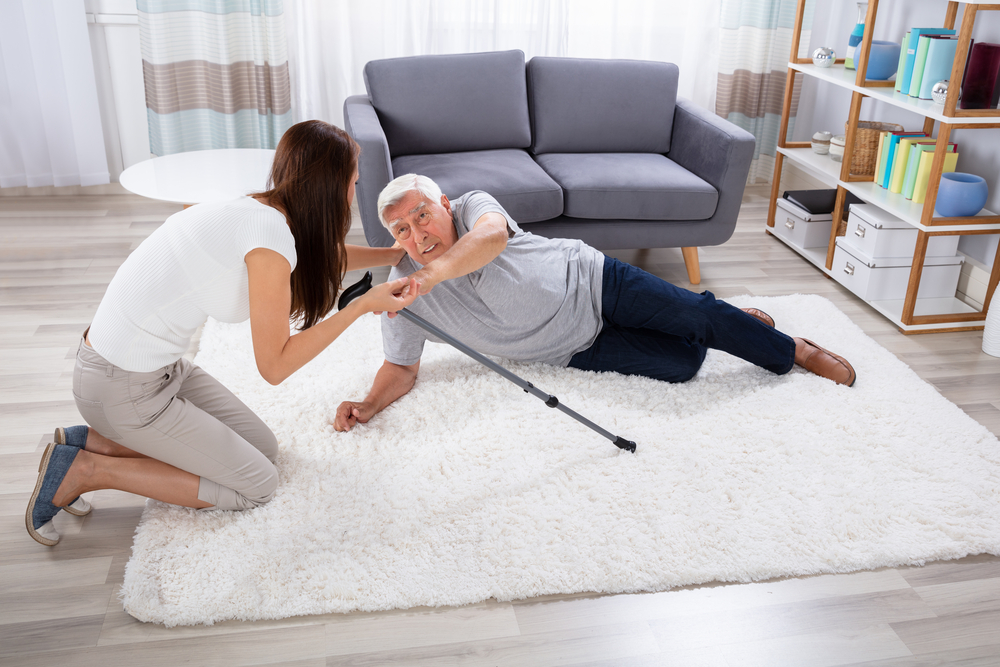 Liability can be a tricky thing, especially in regards to personal property. While you might expect a business to take responsibility for injuries that occur on their property, does the same thing apply to your private residence? If someone is injured on your property, could you be held liable in a civil lawsuit? Let’s take a look at a few of the factors that influence liability in these situations.
Liability can be a tricky thing, especially in regards to personal property. While you might expect a business to take responsibility for injuries that occur on their property, does the same thing apply to your private residence? If someone is injured on your property, could you be held liable in a civil lawsuit? Let’s take a look at a few of the factors that influence liability in these situations.
Duty of Care
Generally speaking, a property owner has a duty to maintain their property to a degree that any other reasonable person would. Obviously, what is “reasonable” is a gray area; however, most people would agree that leaving a front porch step broken for months at a time is unsafe and should have reasonably been repaired sooner. Essentially, if it’s a clear hazard and the property owner is aware of it, the property owner has a duty to handle the issue.
If there is an unsafe condition on your property and you’re not immediately able to tend to it, then you should take steps to notify others of the unsafe condition, either with a clear sign or verbal warning.
Person’s Status on Your Property
In this last regard, your duty of care can differ depending on the individual’s status on your property. There are generally three legal categories of individuals on a person’s property: invitee, licensee, or trespasser. An invitee is anyone you’ve invited on your property; a licensee is someone who visits your property for their own purposes, such as solicitors; and a trespasser is anyone who has entered the property without permission.
Your duty to notify these individuals of dangerous circumstances varies based on which category they fall into. An invited guest must be warned of any known dangers on your property. While your duty to licensees is lower, it is expected that the property owner should make an effort to notify them of hazardous conditions.
Trespassers provide an interesting circumstance in terms of personal liability. In most cases, a property owner isn’t held liable for injuries sustained when someone illegally enters their property. However, liability can exist under certain circumstances, such as:
For example, if you have a large plot of land that people often cut through, you may wish to deter them from using your property as a shortcut. But if you create a dangerous situation on your property as a way of deterring trespassing, and someone is injured as a result, you could be liable.
Injured Person’s Actions
In addition to their status on your property, the injured party’s actions are also taken into consideration when determining liability. Just as a property owner must exercise reasonable care to maintain their property, each individual is expected to exercise reasonable care to protect their own person. If someone falls from your balcony because the railing is loose, you could be liable for their injuries; but if they were climbing and standing on that railing when it collapsed beneath them, you probably won’t be. If the injured person engaged in some sort of activity that contributed to their injuries, your liability is much lower.
Injuries during Recreational Activities
Certain property features and recreational activities increase the likelihood of an injury occurring on your property. Two common examples would be trampolines and swimming pools. While enjoyable backyard features, pools and trampolines offer many opportunities for injuries to occur. If an injury occurs when one of your guests is using one of these features on your property, are you liable for simply having the equipment and allowing them to use it?
This is a tricky area. Pools and trampolines are considered an “attractive nuisance,” which essentially means they’re fun, but potentially dangerous. Your duty of care as a property owner is much higher when you have one of these features on your property. You’re expected to constantly supervise the use of such things to ensure that proper safety measures are being followed. If an injury occurs due to insufficient supervision, you’re likely to be held liable.
Liability law is incredibly complex, and no two cases are the same. If you’ve been injured on someone’s property, or if you’re being sued for an injury that occurred on your property, we encourage you to reach out to one of our liability attorneys here at the Harr Law Firm for assistance.